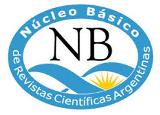Curricularizar la extensión para integrar y territorializar la práctica universitaria
Keywords:
Universidad, currículo, extensión, integralidad, territorioAbstract
Se define y problematiza los conceptos de curricularización de la extensión, integralidad de las prácticas universitarias, y territorialización de la universidad como modelo de gestión, en los términos del debate que algunas universidades latinoamericanas vienen sosteniendo desde el año 2008, en el contexto de algunas Conferencias Regionales de Educación Superior en América Latina y El Caribe y, a nivel nacional, en el marco de la Red Nacional de Extensión Universitaria (REXUNI) creada ese mismo año. El trabajo inicia con un breve repaso por las principales definiciones del concepto de extensión universitaria y algunos debates actuales en torno a sus alcances, limitaciones y desafíos, y su relación con los procesos de innovación social. Posteriormente se desarrolla el concepto de integralidad, sus características generales y los desafíos epistemológicos, metodológicos y pedagógicos que plantea, y el impacto de las prácticas que desde esta perspectiva pueden reconocerse en la experiencia de algunas universidades latinoamericanas. Por último, se discute el concepto de territorialización de la universidad vinculándolo con los procesos de curricularización de la extensión e integralidad. El artículo concluye con el señalamiento de algunos posibles desafíos de gestión para las universidades, en particular las públicas nacionales.
Downloads
Downloads
Published
How to Cite
Issue
Section
License
The acceptance of an original by the journal implies the non-exclusive transfer of the economic rights of the authors in favor of the editor, who allows reuse, after editing (postprint), under a Creative Commons Attribution License -NonCommercial-ShareAlike 4.0 International (CC BY-NC-SA 4.0)
In accordance with these terms, the material can be shared (copied and redistributed in any medium or format) and adapted (remixed, transformed and created from the material another work), provided that a) the authorship and original source of its publication (magazine and URL of the work), b) is not used for commercial purposes and c) the same license terms are maintained.
The transfer of non-exclusive rights implies that after its publication (postprint) in Cuadernos de H ideas the authors can publish their work in any language, medium and format; in such cases, it is requested that it be stated that the material was originally published in this journal.
Such assignment also implies the authorization of the authors for the work to be harvested by SEDICI, the institutional repository of the National University of La Plata, and be disseminated in the databases that the editorial team considers appropriate for increase the visibility of the publication and its authors.
Likewise, the journal encourages the authors so that after their publication in Cuadernos de H ideas they deposit their productions in other institutional and thematic repositories, under the principle that offering society scientific and academic production without restrictions contributes to a greater exchange of global knowledge.










.png)

























